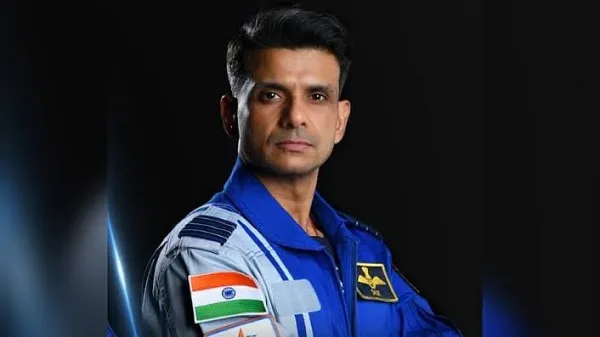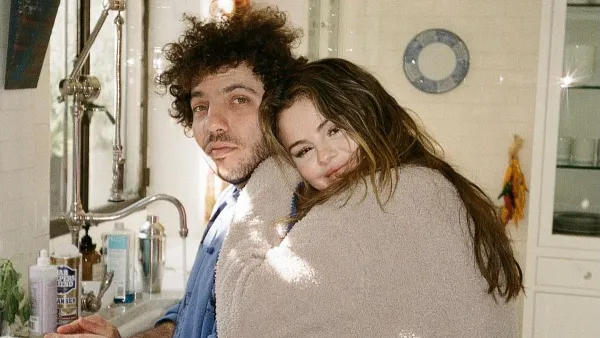Several legacy consumer companies are seeing an unprecedented C-suite churn, with three FMCG majors replacing their India chiefs in the past six days amid intensified competition, tepid growth and global pressure to perform. Three more are set to follow suit.
On Tuesday, Coca-Cola bottler Hindustan Coca-Cola Beverages named Hemant Rupani its chief executive, days after Hindustan Unilever and L’Oreal also announced leadership changes.
Former president at Mondelez South Asia, Rupani is the first external candidate named to lead Coca-Cola’s bottling business. He will succeed Juan Pablo Rodriguez, effective September 8. His appointment comes ahead of Jubilant Bhartia Group consolidating its operations with HCCB after acquiring a 40% stake for Rs 12,500 crore.
Meanwhile, long-serving heads of Nestlé and Wipro Consumer Care & Lighting are retiring in the coming months, paving the way for new faces at the helm.
Haleon (formerly GlaxoSmithKline Consumer Healthcare) is also expected to see a leadership transition.
All this comes amid a prolonged slowdown in the fast-moving consumer goods (FMCG) sector, increasing pressure on companies to tweak their business models in line with changing consumption patterns and increasing influence of technology.
He pointed to changes in long-standing consumption patterns disrupting the FMCG business. “Quick commerce, premiumisation, the growth of D2C brands and the rise of Gen Z consumption have all led to changes in traditional FMCG business models,” Ramanathan said.
Shiv Shivakumar, former head of PepsiCo and Nokia and now operating partner at private equity firm Advent International, noted that the industry has been “growing slower than India’s real GDP for the last four years.” “The FMCG sector is…(still) running on a 2000s playbook,” he said. “The sector needs consumer technology thinking.”
However, Shivakumar emphasised that a leadership change may not be the solution. “FMCG companies could buy short-term solace with CEO changes, but the skills and capabilities for a consumer technology world are missing,” he said.
Over the past year, demand in urban markets — which account for nearly two-thirds the sales of most FMCG companies — moderated, largely due to a high base, low wage growth and consumers cutting down on discretionary spending amid inflationary pressure.
With the broader industry not growing much, companies are under pressure to increase their market share and margins to grow their business. While most legacy firms have managed to retain significant share in their respective categories, regional and digital-only brands have been chipping away at their dominance, whether it’s noodles, tea, soft drinks, biscuits or cosmetics. And this is over and above slowing sales in cities.
Changes Galore
Experts believe companies need fresh ideas to overcome these challenges. The new CEOs will have their hands full.
Beauty and cosmetics major L’Oreal has named Jacques Lebel as its India country manager, replacing Aseem Kaushik from October 1. Kaushik has been designated company chairman. India currently contributes just over 1% to the French parent’s annual sales of over 41 billion euros. Last Thursday, HUL announced that its chief executive and managing director Rohit Jawa was stepping down, to be succeeded by another Unilever veteran, Priya Nair, effective August 1. Jawa’s two-year stint, the shortest ever for a chief at the maker of Dove soap and Brooke Bond tea, saw revenue growth of just 2% compounded annually.
In March, Britannia chief executive Rajneet Kohli quit and joined HUL to head the latter’s foods division. Britannia is currently scouting for a successor to Kohli, to report to managing director Varun Berry. Nestlé India managing director Suresh Narayanan will retire on July 31, to be succeeded by former Amazon India country manager Manish Tiwary, who brings with him a legacy of digital operations.
Wipro Consumer Care & Lighting, too, has announced that its chief executive and managing director Vineet Agrawal will retire next January, to be succeeded by Kumar Chander, who is currently president, Southeast Asia and Yardley India.
Another transition that is learnt to be in the works is that of Haleon general manager Navneet Saluja. The company is currently running a mandate to find his successor, according to people aware of the development. Haleon did not respond to ET’s query seeking confirmation until press time on Tuesday.
Experts noted that the reason for change in guard is mostly company-specific, except at HUL, where performance-led issues seem to have led to the appointment of a new CEO.
Digital exposure and global experience are considered must-have qualities as companies scout for new chiefs, industry executives said. “New-age and direct-to-consumer brands have been a concern for legacy companies, and it is crucial for new leaders to understand the problem,” said Abneesh Roy, executive director at Nuvama Institutional Equities. “What can work in their favour is the fact that the worst is behind in terms of demand, and the macro environment is looking better, with lower inflation and other issues.” He noted that nothing is expected from a new leader on day one. “Also, companies have multiple talents and are not overly dependent on one person,” Roy said. The leadership churn is reflective of what’s happening across global firms, as boards are increasingly concerned about weak sales growth and slower innovation, analysts said.
Hein Schumacher, former global chief executive at Unilever, was ousted earlier this year after just a little over 18 months. Last year, former Starbucks CEO Laxman Narasimhan had to quit just one year after taking charge of the coffee chain.
Swiss foods giant Nestlé SA too asked its chief executive Mark Schneider to step down mid last year, attributed to the underperformance at the world’s biggest packaged foods company, analysts said.
In India, nearly 200 brands launched over the past decade or so now control 6% of the overall consumer goods and lifestyle market, steadily nibbling into the share of established players, according to a joint report by Bain and DSG Consumer Partners. These insurgent brands, which had just 2% market share five years ago, have expanded five times to reach a combined annual revenue of $5 billion. The beauty and personal care segment leads the insurgent wave, with five times the market growth and a 5% market share in 2024, compared to just 1% in 2019. About 40 of these insurgent brands have a larger combined revenue than many incumbent beauty companies.
On Tuesday, Coca-Cola bottler Hindustan Coca-Cola Beverages named Hemant Rupani its chief executive, days after Hindustan Unilever and L’Oreal also announced leadership changes.
Former president at Mondelez South Asia, Rupani is the first external candidate named to lead Coca-Cola’s bottling business. He will succeed Juan Pablo Rodriguez, effective September 8. His appointment comes ahead of Jubilant Bhartia Group consolidating its operations with HCCB after acquiring a 40% stake for Rs 12,500 crore.
Meanwhile, long-serving heads of Nestlé and Wipro Consumer Care & Lighting are retiring in the coming months, paving the way for new faces at the helm.
Haleon (formerly GlaxoSmithKline Consumer Healthcare) is also expected to see a leadership transition.
All this comes amid a prolonged slowdown in the fast-moving consumer goods (FMCG) sector, increasing pressure on companies to tweak their business models in line with changing consumption patterns and increasing influence of technology.
Technology Disruption
“Leadership changes are an opportunity to trigger more efficient business and operating modes with more intensive use of technology or AI (artificial intelligence),” said Anand Ramanathan, partner and consumer industry leader at Deloitte South Asia.He pointed to changes in long-standing consumption patterns disrupting the FMCG business. “Quick commerce, premiumisation, the growth of D2C brands and the rise of Gen Z consumption have all led to changes in traditional FMCG business models,” Ramanathan said.
Shiv Shivakumar, former head of PepsiCo and Nokia and now operating partner at private equity firm Advent International, noted that the industry has been “growing slower than India’s real GDP for the last four years.” “The FMCG sector is…(still) running on a 2000s playbook,” he said. “The sector needs consumer technology thinking.”
However, Shivakumar emphasised that a leadership change may not be the solution. “FMCG companies could buy short-term solace with CEO changes, but the skills and capabilities for a consumer technology world are missing,” he said.
Over the past year, demand in urban markets — which account for nearly two-thirds the sales of most FMCG companies — moderated, largely due to a high base, low wage growth and consumers cutting down on discretionary spending amid inflationary pressure.
With the broader industry not growing much, companies are under pressure to increase their market share and margins to grow their business. While most legacy firms have managed to retain significant share in their respective categories, regional and digital-only brands have been chipping away at their dominance, whether it’s noodles, tea, soft drinks, biscuits or cosmetics. And this is over and above slowing sales in cities.
Changes Galore
Experts believe companies need fresh ideas to overcome these challenges. The new CEOs will have their hands full.Beauty and cosmetics major L’Oreal has named Jacques Lebel as its India country manager, replacing Aseem Kaushik from October 1. Kaushik has been designated company chairman. India currently contributes just over 1% to the French parent’s annual sales of over 41 billion euros. Last Thursday, HUL announced that its chief executive and managing director Rohit Jawa was stepping down, to be succeeded by another Unilever veteran, Priya Nair, effective August 1. Jawa’s two-year stint, the shortest ever for a chief at the maker of Dove soap and Brooke Bond tea, saw revenue growth of just 2% compounded annually.
In March, Britannia chief executive Rajneet Kohli quit and joined HUL to head the latter’s foods division. Britannia is currently scouting for a successor to Kohli, to report to managing director Varun Berry. Nestlé India managing director Suresh Narayanan will retire on July 31, to be succeeded by former Amazon India country manager Manish Tiwary, who brings with him a legacy of digital operations.
Wipro Consumer Care & Lighting, too, has announced that its chief executive and managing director Vineet Agrawal will retire next January, to be succeeded by Kumar Chander, who is currently president, Southeast Asia and Yardley India.
Another transition that is learnt to be in the works is that of Haleon general manager Navneet Saluja. The company is currently running a mandate to find his successor, according to people aware of the development. Haleon did not respond to ET’s query seeking confirmation until press time on Tuesday.
Experts noted that the reason for change in guard is mostly company-specific, except at HUL, where performance-led issues seem to have led to the appointment of a new CEO.
Mirroring Global Trends
Digital exposure and global experience are considered must-have qualities as companies scout for new chiefs, industry executives said. “New-age and direct-to-consumer brands have been a concern for legacy companies, and it is crucial for new leaders to understand the problem,” said Abneesh Roy, executive director at Nuvama Institutional Equities. “What can work in their favour is the fact that the worst is behind in terms of demand, and the macro environment is looking better, with lower inflation and other issues.” He noted that nothing is expected from a new leader on day one. “Also, companies have multiple talents and are not overly dependent on one person,” Roy said. The leadership churn is reflective of what’s happening across global firms, as boards are increasingly concerned about weak sales growth and slower innovation, analysts said.Hein Schumacher, former global chief executive at Unilever, was ousted earlier this year after just a little over 18 months. Last year, former Starbucks CEO Laxman Narasimhan had to quit just one year after taking charge of the coffee chain.
Swiss foods giant Nestlé SA too asked its chief executive Mark Schneider to step down mid last year, attributed to the underperformance at the world’s biggest packaged foods company, analysts said.
In India, nearly 200 brands launched over the past decade or so now control 6% of the overall consumer goods and lifestyle market, steadily nibbling into the share of established players, according to a joint report by Bain and DSG Consumer Partners. These insurgent brands, which had just 2% market share five years ago, have expanded five times to reach a combined annual revenue of $5 billion. The beauty and personal care segment leads the insurgent wave, with five times the market growth and a 5% market share in 2024, compared to just 1% in 2019. About 40 of these insurgent brands have a larger combined revenue than many incumbent beauty companies.





